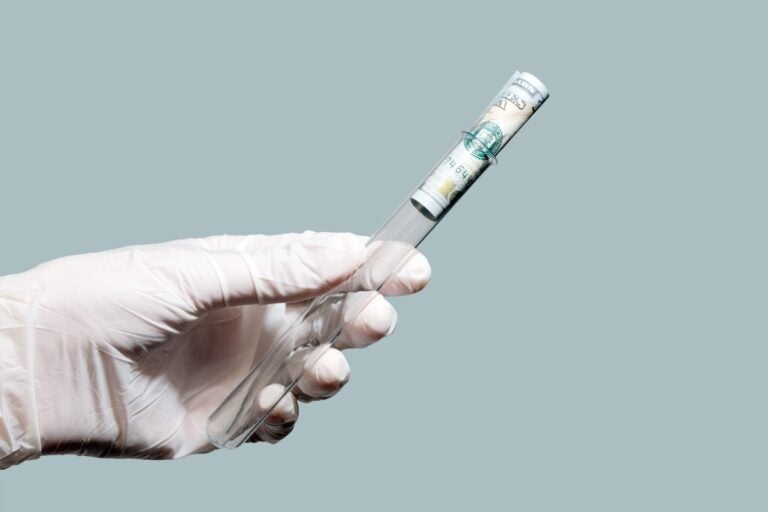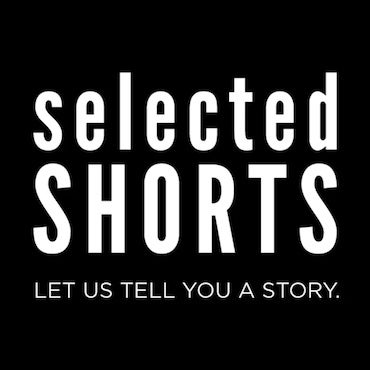23andMe made millions by sharing your genetic data — but how much is DNA actually worth?
After years of collecting consumer DNA, genetic testing companies are monetizing the data. But who should profit — the company or the people who shared their DNA?
Listen 9:37
If DNA testing companies can monetize consumer DNA, how much is your genetic data actually worth? (Bigstock/Romsvetnik)
This story is from The Pulse, a weekly health and science podcast. Subscribe on Apple Podcasts, Spotify, or wherever you get your podcasts.
Find our full episode on DNA here.
In 2014, Aldo de Pape worked for one of the largest medical journal publishers in the world — helping startups make research results more accessible by creating ways to upload findings online.
“We were all about open science. Make it all available so we can all achieve scientific progress essentially,” said de Pape. “There was a professor who really took it to heart and what he uploaded to the infrastructure was a VCF.”
A VCF, or Variant Call Format file, is like a PDF or spreadsheet, but for the genetic data of a human being.
“He uploaded that VCF to the infrastructure saying, ‘This is also for science. Here’s the genome of my son.’ And that’s where we paused,” said de Pape. “Because your DNA, we say, is the blueprint to who you are. In your lifetime you will have one highly identifiable piece of information. Your DNA, right? You will have multiple phone numbers, multiple home addresses, but you will only have one genome. So if that’s the case, then we better be very careful with it. And this professor was doing the exact opposite.”
But the incident got de Pape, and a geneticist on his team, thinking.
It was becoming much faster and cheaper to sequence human DNA than it was in the early days of genetics — easier to learn more about yourself, and harder to keep that information private.
Then, in 2018, came news of a major deal between 23andMe and Big Pharma firm GlaxoSmithKline.
“One of the biggest pharmaceutical companies in the world for $300 million. That was the first time that it revealed its real business model, which is basically selling data to the pharmaceutical and research industry,” said de Pape.
GlaxoSmithKline bought access to the exomes — or DNA samples — of over 5 million people.
While the sample quality of an exome isn’t anywhere near that of a full genomic sequence, it does contain most disease-related variants. So the deal allowed de Pape to do some simple math.
To researchers in 2018, an individual’s exome was worth about $60. Then, two years later, that number seemed to shoot up, when the private equity firm Blackstone acquired 23andMe competitor Ancestry.com — and DNA samples from its 18 million subscribers — for 4.7 billion dollars. Or $250 per exome.
“That also was a signal for us, like, okay, this can only go one way, right?” said de Pape.
Customers had paid to spit in a test tube, to have their most personal information analyzed, and in some cases shared with researchers. But now that very personal information was being treated like a commodity, bought and sold without those customers sharing in the profit.
Subscribe to The Pulse
De Pape, and that geneticist he worked with, didn’t see this trend slowing down.
“On top of it being the blueprint to who you are. On top of it being highly identifiable, it also had an exponentially growing monetary value, which for us was a recipe of catastrophe of people chasing up the data. Which then raised new questions around safety and security of the information and that’s what gave life to Genomes.io,” he said.
De Pape started Genomes.io, a DNA testing service that keeps genetic information in a virtual vault using encryption and blockchain technology — giving only users access to their genetic information, with the option to opt-in to third party research — and even in some circumstances, getting paid for it.
“Our infrastructure is something that we would like to call a virtual laboratory,” said de Pape.
On the supply side, individuals pay Genomes.io to sequence their DNA, run health and ancestry reports, and securely store their information in a personal “vault”. Customers retain ownership of the genetic information in their vault, which can only be decrypted by the customer.
On the demand side, researchers pay the company to access and analyze that encrypted information with the individual’s permission, without having to front all the costs to comply with privacy laws. Even when researchers use this data, it is impossible for them to match it with an individual or retain the information they use.
Genomes.io is still just a start up—with only a little over 6000 subscribers.
And that’s a big challenge—because when it comes to DNA samples, their value comes from context and scale.
“Your DNA alone is not worth very much,” said geneticist Ernst Hafen.
Hafen learned this the hard way. Back in the early 1980s, Hafen was at the forefront in the field of developmental genetics — studying the DNA of fruit flies as a model for human beings. The ultimate goal of his research was to target specific genes shared among fruit flies and humans that could someday be altered to cure diseases or stop cancer in its tracks.
He formed a startup in the late 1990s called The Genetics Company.
“We were totally naive,” he said.
Hafen and his cofounders thought they would quickly identify these bad genes and get bought out by a pharmaceutical giant who could take on the expensive grunt work of bringing a therapy to market. And while some therapies for cancer and rare diseases would later prove the basic science behind their work, the research wasn’t nearly as fruitful as Hafen hoped. It soon became clear that the utility of genetic information alone was quickly running out.
“The DNA alone is not very valuable,” said Hafen. “ You have to put this in the context of your population. You have to put this in the context of your family history.”
Especially within the context of the rest of your genome — your specific combination of genes and what that combination results in.
“We’ve been always focusing my entire career to try to pin down something to a single gene, right? Because that’s what we’ve been able to do. But evolution and natural selection has really never cared about single genes,” Hafen said.
Instead, natural selection cares about phenotype, or the expressions of your genes. Do you get good sleep? Do you have high cholesterol? This is the kind of information found in your medical records, and without it, Hafen said most people’s DNA likely reveals little to researchers.
By 2006, his company was bankrupt. But it taught him a valuable lesson.
That routing out the secret cause of all disease was not something researchers could really narrow down with a simple DNA sample.
Hafen pointed to 23andMe as an example.
The DNA testing company quickly ran into financial troubles, ultimately leading to it filing for bankruptcy earlier this year. The move appeared to be a clever case of corporate maneuvering rather than a sign of its true value.
But six years after its blockbuster deal with Big Pharma, 23andMe recently announced it was selling most of its assets for only $305 million.
Adjusted for inflation, that’s less than the original data-sharing deal with GlaxoSmithKline.
Hafen believes all this sputtering can be chalked up to a black hole at the center of the DNA testing business plan.
“You can see that also now with 23andMe going bankrupt. They have [15 million] sequences, including that of my family. Turned out not to be so valuable as they thought because there is not so much in the genetic information alone,” said Hafen.
That values an individual exome at around $20.
Today, Hafen is helping lead an initiative in Sweden to consolidate medical data in one secure location — controlled by patients. He says DNA remains an important part of your larger health profile. But right now, at least, it’s not exactly any more valuable than any other health indicator.
“Because if you are an insurance company in the United States and you want to make sure to adjust the premium, you can say, ‘okay, give me your genome and based on your genome, I make you an offer,’” said Hafen. “But it is actually much more valuable and much easier … to get your credit card purchases. And based on the credit card purchases, you could find out that you always order X/XL clothes. Because either you already have type 2 diabetes or you are going to get it very soon and that hikes up the treatment costs because this is a chronic disease. So I’m saying, yes, genetics can tell you something, but it is much more abstract.”
But as long as the market believes genetic data might hold some special value in the future, someone will be trying to get it on the cheap.
That is why Genomes.io founder Aldo de Pape wants people to start thinking about their DNA like their online browsing history or credit score. He says as the science of genetics progresses, those major acquisitions will only continue.
“Whenever there’s such a transaction, do the numbers yourself, and they will all show you, yes, there is monetary value,” he said.
According to a company statement, 23andMe users may opt-out of making their data available for research in perpetuity following the sale. Still, de Pape is banking on individuals wanting an extra layer of protection for their DNA in the future.
WHYY is your source for fact-based, in-depth journalism and information. As a nonprofit organization, we rely on financial support from readers like you. Please give today.






